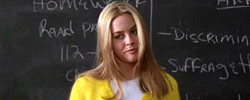Reviews
Garry Marshall
USA, 1990
Credits
Review by Adam Balz
Posted on 03 July 2006
Source Buena Vista Home Entertainment DVD
Categories Chick Flicks
Garry Marshall’s gentle examination of the relationship between a California hooker and a New York City businessman is a cinematic anomaly, and I imagine it took many viewers by surprise. The notion that Marshall, renowned for his outlandish and unconventional television comedies, could direct two great performers—one an acting professional, the other an up-and-comer with minimal film experience—in a drama with barely any comedic interludes must have seemed unlikely at the time. Nonetheless, Pretty Woman dominated the box office, secured a career for star Julia Roberts, and transformed the “chick flick” subgenre into an all-encompassing examination of female faults and tribulations.
Though sex is Vivian’s business, Edward’s initial disinterest in consummation translates as a compassionate regard towards personality and mind rather than body. It also provides us with an interesting contradiction in both characters: Edward and Vivian, who both refuse to kiss on the lips for fear of intimacy, look upon sex differently; Edward looks for purpose in sex, as the act cannot be hollow and pointless, not cheapened by a vain monetary exchange; while Vivian, who will perform anything a man desires, finds kissing too personal. However Edward is not the in-the-dark Adonis of more recent romance films. He acknowledges Vivian’s profession almost immediately (“Tell me, what kind of money you girls make these days?”), so it never becomes a tawdry secret that might someday tear them apart. Nor is it a topic of disgust for Edward, as it is for many of his associates. He also recognizes through a growing consciousness that his own profession isn’t ethically laudable; when Vivian mentions that he doesn’t create or build businesses, only dismantle and destroy them, Edward counters later with, “We both screw people for money.” He’s impassively sardonic, resigned to who he is, the callousness of what he does, and the world around him.
There’s also an interesting contrast in Vivian. She isn’t looking for reverence; she has chosen the world she lives in and never seems regretful, even acknowledging the underlying depravity on many occasions, but she also demands respect. When Edward, at the end of their week-long affair, offers to buy her a car and apartment of her own, she reacts with disgust; he’s just handled her as one would a cheap possession.
More than anything, money is the paradoxical root of antagonism and redemption in Pretty Woman, which itself was originally titled Three Thousand in reference to Edward’s recompense for a week of Vivian’s company. Money is what drives both Edward and Vivian—those respective multi-million contracts and hundred-dollar flings—but where money dehumanizes Edward, eventually causing him to reconsider his lifestyle, it unlocks Vivian’s complicated humanity. She buys a new wardrobe but declines an early compensation.
Chick flicks from the late 1980s and early 1990s, particularly Working Girl and Fried Green Tomatoes, seem to have focused more on womens’ search for equality and respect rather than genuine love (though affection always developed during the process), whether it be Melanie Griffith’s appropriation of her boss’ power or Kathy Bates’ search for earnest devotion from her husband. In a sense, Pretty Woman is the antithesis of Working Girl-style feminism: While other women begin the corporate climb for power and respect, equality and authority, Vivian accepts the degrading and submissive profession of prostitution, a vocation heavily dependent on money and disgrace rather than merit and esteem. Although she seems well-suited for the extravagant dresses and expensive jewelry Edward buys her, as though she walked out of an office rather than off a sidewalk, she’s still a streetwalker in the eyes of society.
More than the atypical characters or their strange self-awareness, what distinguishes Pretty Woman from other like-minded romances is that it’s based around an Italian opera, Verdi’s La Traviata, rather than the overused boy-meets-girl scenario. (Marshall even pays tribute to the opera later in the film.) Violetta the courtesan becomes Vivian the prostitute; Alfredo the adoring suitor becomes Edward the brutal businessman. And Marshall, outwardly devoted to the sober beauty of the original libretto, allows his film to embrace the same benevolent devoutness and fervor that Verdi provided his singers centuries ago. In fact, the original script was incredibly bleak and cruel, with a drug-addicted Vivian being ultimately rebuffed by Edward. The story we know today, on the other hand, is a portrait of understanding and two-fold salvation in a rather unfeeling, materialistic world.
More Chick Flicks
-

The Truth About Cats & Dogs
1996 -

Say Anything
1989 -

Gas Food Lodging
1992 -

Pretty Woman
1990 -

Walking and Talking
1996 -

Mean Girls
2004 -

Fried Green Tomatoes
1991 -

Private Benjamin
1980 -

Clueless
1995 -

Erin Brockovich
2000 -

The Bridges of Madison County
1995 -

Bridget Jones’s Diary
2001 -

Working Girl
1988 -

Bend It Like Beckham
2002 -

Bring It On
2000 -

Ghost
1990 -

Truly Madly Deeply
1991 -

The Last of the Mohicans
1992
We don’t do comments anymore, but you may contact us here or find us on Twitter or Facebook.



